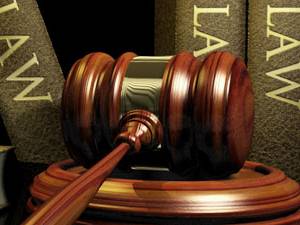Law Careers Background
 You probably know someone who drives as if there were no speed limits or stop signs. They just zoom down the road, oblivious of others. What if there really were no traffic laws like stopping at stop signs or driving slower on a curvy road? We would live in a much more dangerous and disorganized society if we did not have laws. Traffic law is just one small segment of the overall law of our country, but it’s clear how important laws of all kinds are to all aspects of a community.
You probably know someone who drives as if there were no speed limits or stop signs. They just zoom down the road, oblivious of others. What if there really were no traffic laws like stopping at stop signs or driving slower on a curvy road? We would live in a much more dangerous and disorganized society if we did not have laws. Traffic law is just one small segment of the overall law of our country, but it’s clear how important laws of all kinds are to all aspects of a community.
Our legal system includes statutes (laws) enacted by legislatures (Congress) and decisions handed down by the courts (judicial system). The law provides us with guidelines and rules to live by in our personal, social, and business activities. When someone doesn’t follow the laws or a law is unclear, our legal system includes ways to settle disputes and resolve conflicts. The law in the United States is based on democratic principles, and its goal is to protect individual rights and ensure a just and free society.
Throughout history, societies have established systems of law to govern people. One of the earliest known codes of law is the Code of Hammurabi developed about 1800 BC by the Babylonians. Roughly 400 years later, Moses was given and then introduced the Ten Commandments, which have become the foundation of Judeo-Christian ethics and the basis of our current legal system.
The ancient Greeks and Romans set up the first schools of law for young boys to learn the many skills involved in pleading a case. To be an eloquent speaker was a great advantage. The Greeks especially focused their training on thinking logically, another important part of debating and proving matters of the law.
In the late 1700s and early 1800s, Napoleon organized and refined European law into what became known as the Napoleonic Code. The Napoleonic Code of law is based more on common sense than on specific legal theories.
In America’s early days, the settlers lived under the English Common law that they brought with them to the New World. This common law began under Henry II in England and set up standard punishments for certain crimes. This common law was later modified by the Articles of Confederation and then the Constitution. In areas of the United States that were originally controlled by the Spanish, such as California and Texas, traces of Spanish law still exist. Similarly, because Louisiana was controlled by the French, it still operates a legal system based more on French laws than on the English legal system. But in all cases, the laws of other countries and other times were adapted by legislatures to fit the changing needs and customs of American society. Our legal system today is called statutory because lawmakers enact statutes to govern us.
Several fields of law have been practiced in the past and continue to be practiced today. The two most well-known fields are criminal law and civil law. Criminal law focuses on crime, that is, acts committed in violation of a law. This field of law is concerned with an individual’s relation to society; in fact, criminal acts are considered offenses against all members of a society even if the acts were committed against only one person. Anyone who breaks criminal laws may be punished with prison time or fines. Civil law focuses on relationships between individuals. Most civil law addresses written contract, wrongs against individuals (or torts), and property issues. Those who break civil law cannot be imprisoned or fined as a result, but they may have to pay money as a result of the decision of the court. Other fields of law include administrative law, constitutional law, tax law, maritime law, and labor law.
Today, whenever a person faces problems involving legal rights, buys or sells a house, wants a divorce, starts a business, or decides to make a will or draw up a trust, that person needs a lawyer. Current estimates put the number of practicing lawyers at approximately 735,000, with the entire legal services field adding several hundred thousand more. Legal professionals can be found in many segments of society, from the government to corporations to the private practice just down the street.
Law professionals are employed in government in almost all types of law and by a variety of government agencies including the Internal Revenue Service, Department of Commerce, Department of Justice, Department of Homeland Security, Department of the Interior, Environmental Protection Agency, and the Federal Drug Administration. A vast number of law professionals work in the local, state, and federal court systems as well. Many lawyers today find work in the private sector for large and small firms and corporations. With the increasing numbers of lawsuits and the complexity of all areas of the law, the field of law is here to stay.
